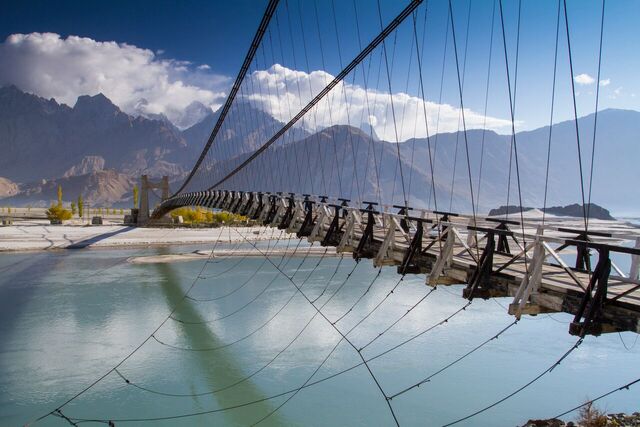
Living off of others’ backs Pakistan believes it’s too huge and too important to fail. Its obsession with bringing up its geostrategic location and nuclear arsenal in every conversation for the last two decades has made the nation delusional.
Pakistan’s complacent attitude toward ideas of progression, be it economic, civil, systemic, or structural reforms, shows the establishment’s little interest in the commoners. It’s also evident in their business-as-usual style of dealing with their economic failure, their bare minimum concern to get their citizens to shallower waters.
Instead, they are focused on exploiting their people and getting what they want through inhuman ways. Yet again the issues of human rights violations have surfaced in the Gilgit Baltistan (GB) region. Pakistan’s history of atrocities in GB is unforgivable. The popular demand for an autonomous state or merging with India is brewing in the region. And to blame are the seven decades of deceit, barbarities, and recent controversial citizenship laws of the government which have forced the GB citizens into destitution.
Journalists who have tried to report have faced serious ramifications from the state authorities. All communications to the outside world that show the true picture of GB’s ordeals are banned, and going against this can mean anything ranging from physical assault, abductions of family members, and even murder.
Hasnain Ramal, a political and social activist from GB who used to unite people to fight for their political, social, and human rights was arrested multiple times and subjected to brutal police torture without any formal criminal charges framed against him. This is just one example, the tip of the iceberg.
Since the national news does not reach GB, some local newspapers such as Roznama K-2, Ausaf, Badshamal, and Mohasib, are trying to fill the gap. Learning about the lifestyle and developments in the rest of Pakistan, and GB’s lack thereof, the people are angry. To contain the crowd and keep them in control, the newspapers we shut down by the country.
The political activists are framed with false charges. Baba Jan, a prominent leader of the Labour Party in Gilgit Baltistan, who has been actively campaigning for the rights of locals, was arrested under the Pakistan Anti- Terrorism Act. He was imprisoned for more than 9 years and released after much noise by the civil society. This is a prominent example of misuse of the law.
Sedation charges were slapped against 19 nationalist political workers of GB just because they spoke at a seminar on the topic “Gilgit-Baltistan in the light of Kashmir Dispute”, conducted by All Parties National Alliance in collaboration with Karakorum National Movement (KNM) at Gilgit.
Pakistan uses the geostrategic location of GB for China-Pakistan Economic Corridor (CPEC), which connects the Chinese market to access the deep Gwadar port. Without GB, Pakistan will lose contact with China and become irrelevant in the region. Therefore to control its position on the map and economic interests, Pakistan suppresses the press, and other relevant actors who show can the true face of Pakistan to the international community.
Since the military has the majority of the powers in the country, and the region of GB is of paramount interest for national security and the country’s economy, the military establishment is deeply involved in its matters. They operate as autonomous bodies and no one can question them. For example, the ISI on commands of the Pak Army tortures and threatens locals to suppress dissenting voices.
Now, where will the victims of such abuse go? GB has two courts without any constitutional status. The federal government can revoke the courts at any point in time. The clause for the appointment of judges of the court system is also cleverly added. Article 75 (7) of the Gilgit Baltistan Order 2018 provides, “A person shall not be appointed as the Chief Judge of the Supreme Appellate Court of Gilgit-Baltistan unless he has attained the age of sixty-six and is a retired judge of the Supreme Court of Pakistan or a retired Chief Justice of a High Court under the constitution. Since the Supreme Court and High Courts in Pakistan do not have any representation from GB, it is impossible for the locals to serve as a judge in the region. So again, here they will be ruled by biased outsiders. This is the reason the government and the Army loot the region, with the courts by their side, while the locals silently watch. The resentment and frustration against the government have today escalated to an uncontrollable uprising and law-and-order situation. Thousands of people are on the streets in Skardu, Gilgit, Hunza, and Ghizer protesting against heavy taxation laws, load shedding, flour crisis, misuse of Khalsa Sarkar laws for land grabbing, and the list goes on. This trajectory is the beginning of the disintegration of GB from Pakistan, and only the nation is to blame.








